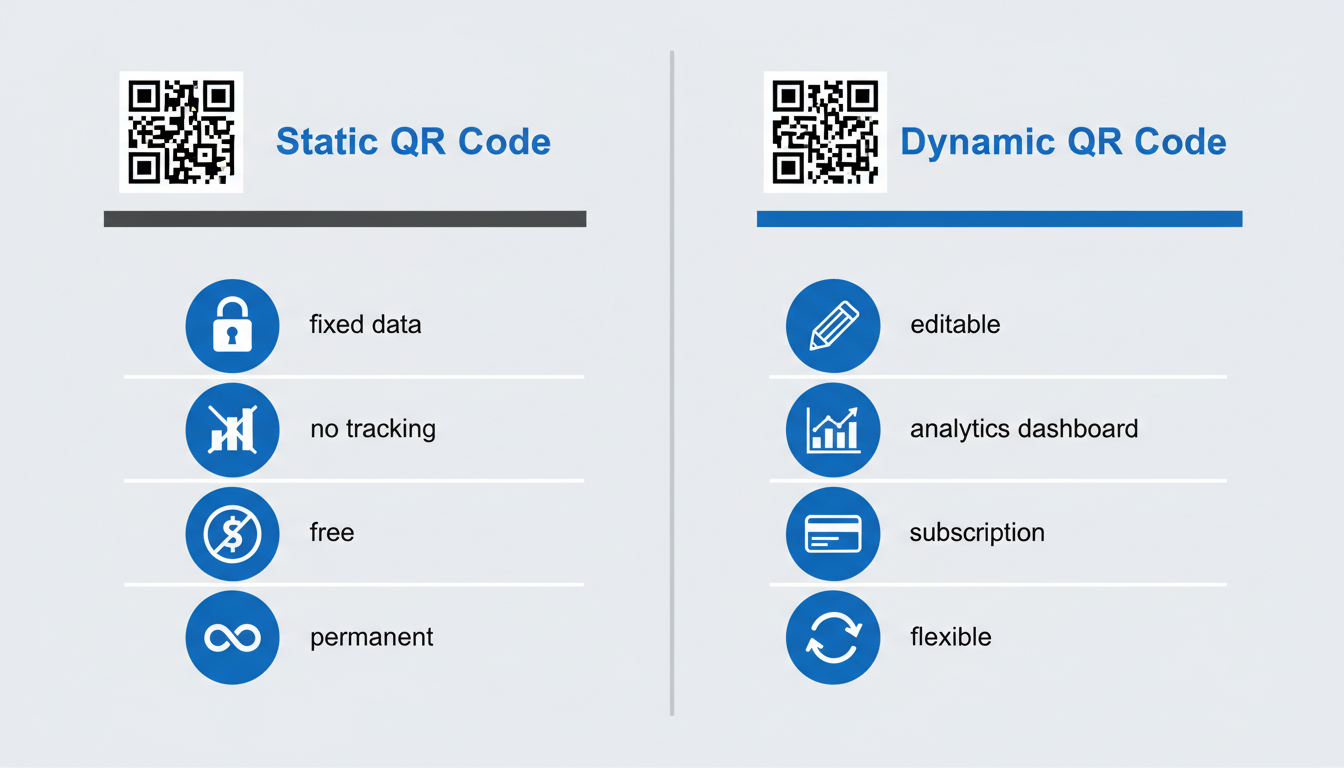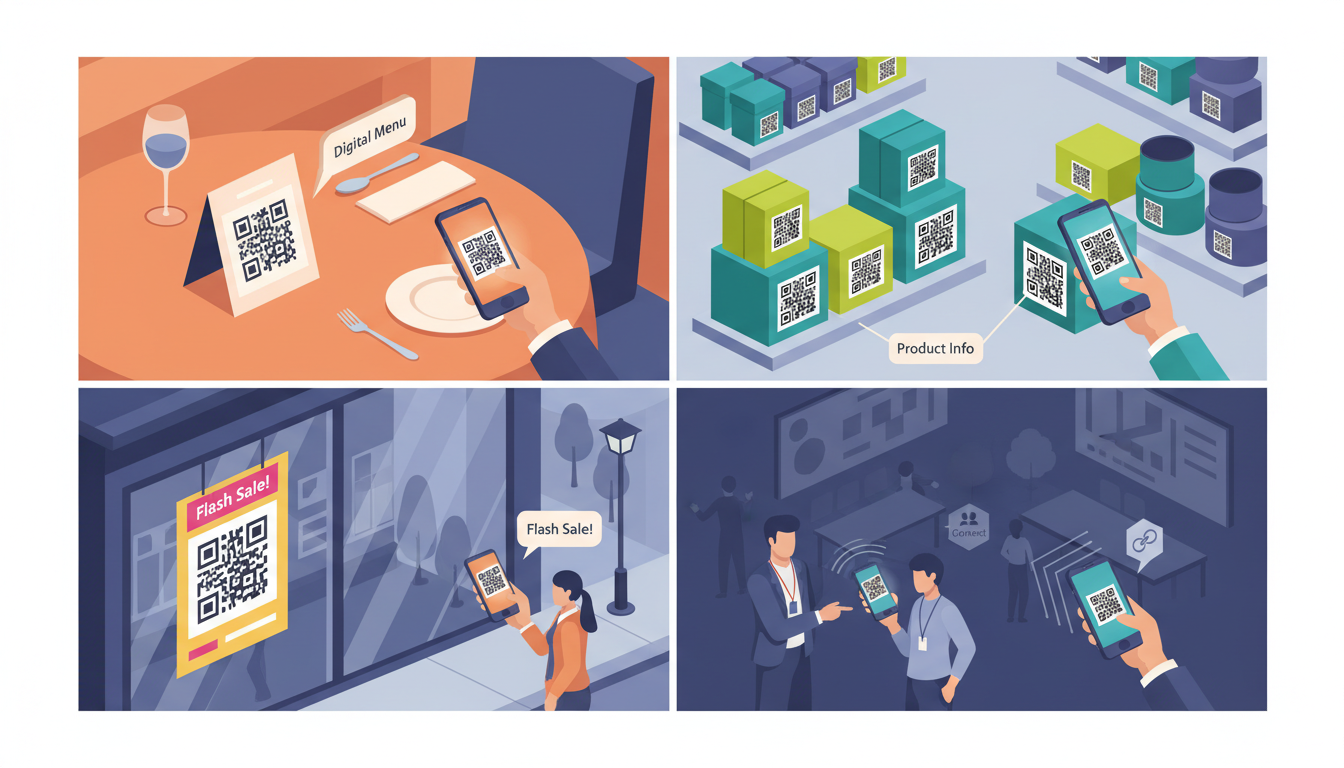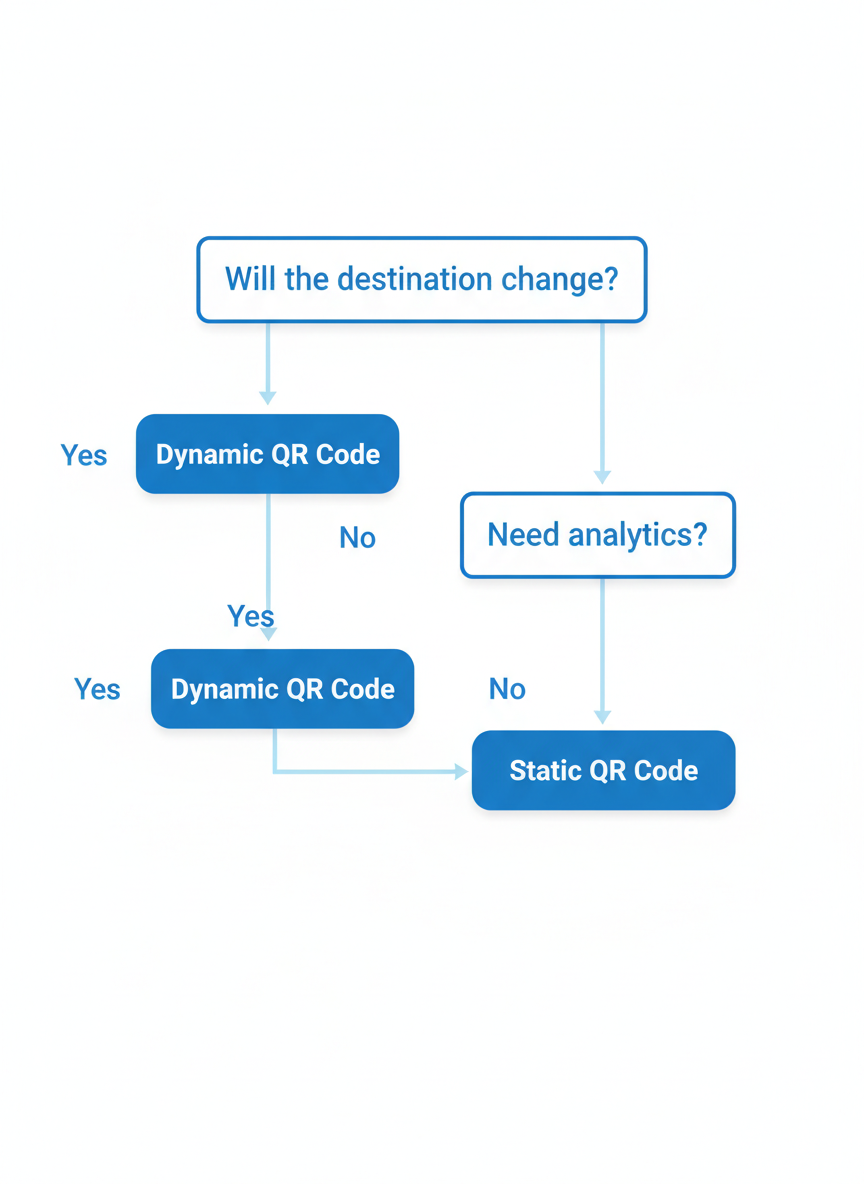QR codes have become standard in QR code marketing, product packaging, and information sharing. But not all QR codes work the same way. The choice between dynamic and static QR codes depends on your specific needs, technical requirements, and long-term goals.
Static codes embed data directly and cannot change after creation. Dynamic codes point to editable URLs with tracking capabilities. Understanding this fundamental difference helps you avoid costly reprints, capture better analytics, and build campaigns that adapt over time. Consumers can even get paid for their attention when engaging with dynamic QR experiences.
This guide provides a technical comparison to help you make the right decision for each use case.

Get Paid to Scan QR Codes
Turn your attention into real rewards. Scan, engage, earn.
Quick video. Earn your first reward.
What Are Static and Dynamic QR Codes?
Static QR codes encode fixed information directly in the pattern. Once created, the data cannot change. If you need to update the destination, you must create and print a new code. They work well for permanent information that will never need updates.
Dynamic QR codes encode a short URL that redirects to your actual content. The short URL stays the same, but you can change where it points anytime. This flexibility makes dynamic codes ideal for campaigns, promotions, and any content that might evolve.
The technical difference is simple but profound. Static codes are containers. Dynamic codes are pointers. Containers hold fixed content. Pointers can be redirected indefinitely. For a deeper understanding, see our guide on QR code tracking capabilities.
Key Technical Differences
Data storage works fundamentally differently between the two types. Static codes embed all information directly in the QR pattern. Longer data creates denser, harder-to-scan codes. Dynamic codes embed only a short URL, keeping the pattern compact regardless of final destination complexity.
Editability separates the two most clearly. Static codes lock their destination permanently at creation. Dynamic codes allow you to change the target URL, parameters, or routing rules anytime without touching the printed code.
Tracking and analytics exist only for dynamic codes. Every scan passes through your redirect server, capturing device type, location, time, and referrer data. Static codes scan directly to their embedded destination with no intermediate tracking layer.
Cost structures differ as well. Static codes are typically free to generate since they require no ongoing infrastructure. Dynamic codes usually require a subscription to maintain the redirect service, analytics dashboard, and management tools. A reliable QR code generator for business provides both options with clear pricing.

Benefits of Dynamic QR Codes
Update content without reprinting. When campaigns change, promotions expire, or page structures evolve, dynamic codes adapt instantly. Change the destination URL and every printed code points to the new location. No recalls, no stickers, no waste.
Track user engagement comprehensively. Scan counts, geographic distribution, device types, time patterns, and funnel events all become visible. This data informs optimization decisions and proves campaign ROI with concrete numbers. For implementation details, see our best QR code practices guide.
Integrate with your CRM and marketing stack. Webhooks push scan events to your systems. APIs enable programmatic code creation and management. Attribution workflows connect offline scans to online conversions.
Shorter patterns scan faster. Because dynamic codes only encode a short URL, they produce less dense patterns. This improves scan reliability in challenging conditions like poor lighting, small print sizes, or older camera phones.

Ready to Innovate Your Customer Experience?
See how businesses use VISU to turn QR scans into measurable engagement.
When to Use Static QR Codes
Static codes make sense when data is truly permanent and tracking is unnecessary. Product serial numbers that will never change fit well. Business card contact information works if you never move or change roles. Wi-Fi credentials for a network that will exist indefinitely suit static codes.
The key question is whether you will ever need to change the destination or track engagement. If the answer is no to both, static codes offer simplicity and zero ongoing cost. If there is any chance you might need updates or analytics, dynamic codes pay for themselves quickly.
When to Use Dynamic QR Codes
Promotional campaigns almost always need dynamic codes. Offers expire, landing pages change, and A/B tests require traffic splitting. Dynamic codes handle all of this without touching printed materials.
Event check-ins and registrations benefit from dynamic flexibility. Update session schedules, redirect to virtual options if needed, and capture attendance data automatically. The code on the badge or poster stays the same while the experience evolves.
Digital menus and rotating offers demand dynamic codes. Restaurants change specials, adjust prices, and add seasonal items. A static menu code becomes outdated the moment prices change. A dynamic code always points to current information.
Any use case involving measurement, optimization, or potential change should default to dynamic. The subscription cost is trivial compared to reprint costs or lost optimization opportunities. Some apps that pay to scan QR codes leverage dynamic routing to deliver personalized rewards.
Making the Right Choice
From a technical standpoint, dynamic QR codes deliver flexibility and analytics for evolving needs. They cost more but provide control, measurement, and adaptability that static codes cannot match.
Static codes remain perfect for fixed, unchanging data where simplicity and zero cost are priorities. They work reliably and require no ongoing management or subscription.
Most modern campaigns benefit from dynamic QR as a controllable pointer layer between scans and final destinations. The ability to change, track, and optimize without reprinting makes dynamic codes the default choice for business applications.
Transform Every Scan Into Revenue
Join businesses already using VISU for gamified QR experiences.

